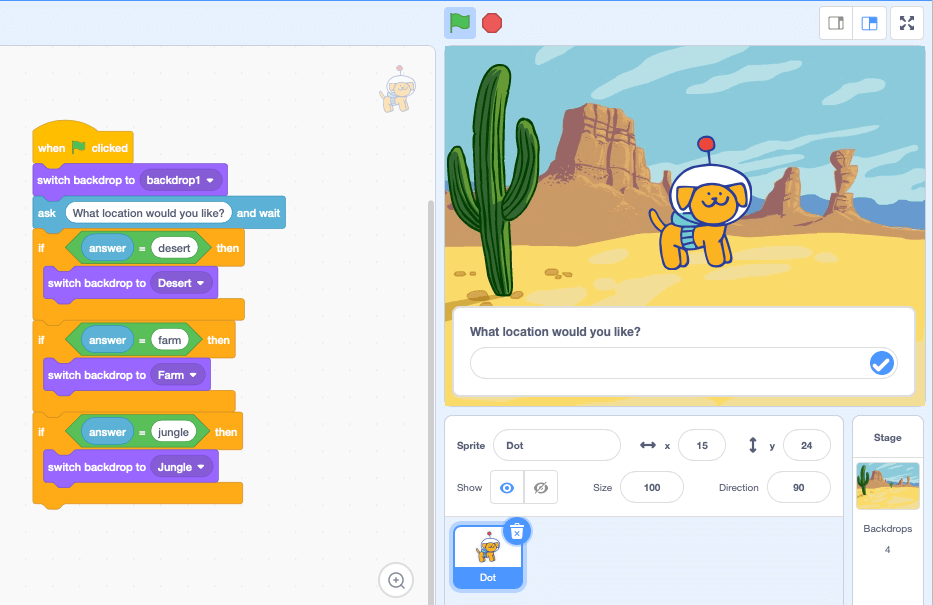
Embarking on Code Quests: Unleashing the Power of Programming Challenges for Kids
In the dynamic landscape of education, Programming Challenges for Kids stand as gateways to unlocking the potential of young minds in the world of coding. These challenges go beyond traditional learning methods, providing an interactive and engaging platform for children to explore the realms of programming, critical thinking, and problem-solving.
Interactive Learning Platforms: Digital Arenas for Code Exploration
At the core of Programming Challenges for Kids is the utilization of interactive learning platforms, serving as digital arenas for code exploration. These platforms act as virtual spaces where children can actively engage in hands-on coding challenges, solving puzzles, and experimenting with programming concepts. For a firsthand experience, kids can explore a variety of coding challenges through this link, turning learning into an exciting adventure.
Hands-On Code Adventures: Navigating Challenges with Creativity
Programming Challenges for Kids often involve hands-on code adventures, allowing young coders to navigate challenges with creativity. Whether it’s solving logic puzzles, creating simple games, or designing interactive stories, these challenges foster an environment where learners can actively apply theoretical knowledge and develop problem-solving skills in a practical setting.
Gamified Learning: Transforming Challenges into Quests
A distinctive feature of Programming Challenges for Kids is the incorporation of gamified learning. Challenges transform into quests where children navigate through levels, solve coding puzzles, and earn rewards. This gamified approach not only adds an element of fun to the challenges but also enhances problem-solving skills as young coders tackle coding obstacles within the context of an engaging game.
Creative Coding Ventures: Merging Artistry with Programming Logic
Beyond the technicalities, Programming Challenges for Kids encourage creative coding ventures that merge artistry with programming logic. Young coders are prompted to view coding as a tool for creative expression, designing their own digital artwork, animations, and even simple games. This fusion not only enhances coding skills but also sparks the development of a creative mindset.
Collaborative Code Quests: Teamwork in the World of Coding
In the collaborative spirit of Programming Challenges for Kids, children often engage in code quests as a team. Group projects and collaborative coding sessions allow young learners to share ideas, solve challenges together, and celebrate the joy of building coding projects collaboratively. This collaborative approach not only enhances their coding proficiency but also fosters essential teamwork and communication skills.
Mentorship and Guidance: Nurturing Young Tech Enthusiasts
Programming Challenges for Kids often include mentorship and guidance from experienced instructors. These mentors play a pivotal role in nurturing the passion for coding in young tech enthusiasts. The guidance provided helps children navigate challenges, seek solutions, and gain insights into the exciting world of technology. This mentorship creates a supportive learning environment where questions are encouraged, and curiosity is celebrated.
Real-World Applications: Bridging Challenges with Practical Skills
An integral aspect of Programming Challenges for Kids is the emphasis on real-world applications of coding. Children explore how coding is applied in various industries, making connections between coding challenges and practical skills. This bridge between theoretical learning and real-world applications adds a layer of relevance to the challenges, sparking curiosity about the impact of coding in everyday life.
Inclusive Learning Environments: Tailoring Challenges for All
Programming Challenges for Kids are designed to be inclusive learning environments, recognizing and accommodating diverse learning styles. These challenges tailor coding education to ensure that every child, regardless of background or learning preferences, can actively participate and thrive. Inclusivity becomes a guiding principle, making coding challenges accessible and enjoyable for all participants.
Fostering Lifelong Curiosity: A Gateway to Tech Exploration
In conclusion, Programming Challenges for Kids serve as gateways to tech exploration, fostering a lifelong curiosity about coding and technology. By combining education with excitement, these challenges empower children to become not just proficient coders but enthusiastic lifelong learners in the tech-driven world. Programming Challenges for Kids are more than educational experiences; they are stepping stones to a future where technology is not just learned but passionately embraced.
